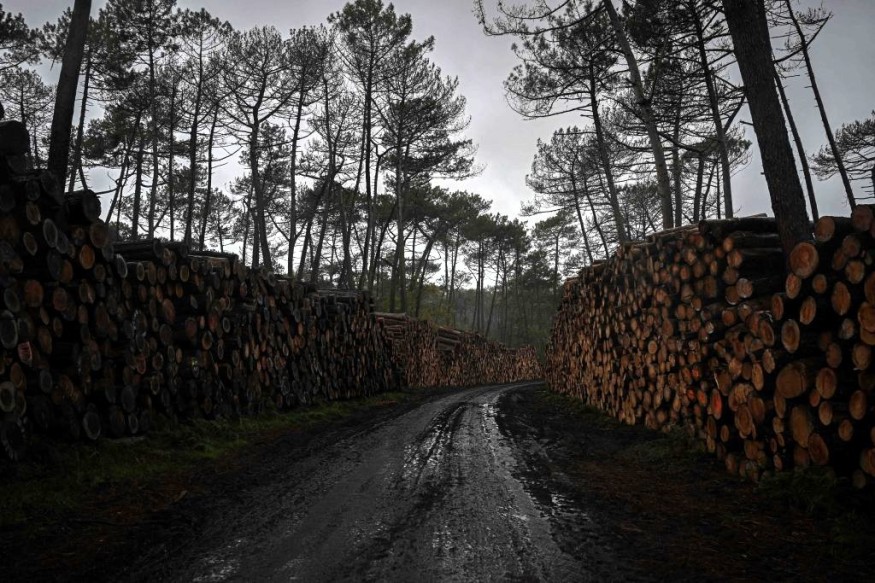
To defuse a "time bomb" that might go off in the spring of 2024, 1,000 ancient trees in France that have been infested with bark beetles are scheduled for logging.
1000 Ancient Trees in France to be Cut Down
Roaring equipment now cut, prune, and remove countless pest-infested trunks that were formerly home to 250-year-old coastal pines.
In 2022, about 30,000 hectares of forest in south-west France were destroyed by wildfires, the second worst on record.
They now confront a new problem: tree-eating bugs are digging into the fire-damaged trees, forcing officials to cut down hundreds of trees.
According to Matthieu Cabaussel, one of the general trustees in charge of the forest of La Teste-de-Buch, the year 2023 will be as terrible and dramatic as the wildfire of 2022.
Bark Beetles
Stenographer bark beetles, with a size of just half a centimeter, predominantly target pine trees damaged by fire or storms.
During mating, these brown beetles infiltrate the tree's inner layers, depositing 30 to 50 larvae. These larvae dig tunnels and disrupt the tree's sap channels, ultimately causing the tree's demise.
Critics contend that authorities responded too slowly to this threat.
When bark beetles infest, the only recourse is to fell the trees. In a prior instance, these beetles had infested a forest in Northern Italy following a storm.
Francis Maugard, the Natural Hazards Officer for the National Forestry Office (NFB), has stressed that the most effective approach is to harvest the infested woods.
The culling process has resulted in the removal of around 80,000 m3 of wood, equivalent to twenty years' worth of normal harvest.
In La Teste-de-Buch, where nearly all of the 3,800 hectares of forest had been scorched, the response was delayed, and tree cutting only began in January after some initial hesitation.
In the UK, strict protocols are in place to combat non-native bark beetles.
Additionally, Gernot Hoch from the BfW Austrian Research Centre for Forests discussed the unexpected spruce bark beetle outbreaks in natural spruce forests at higher elevations in Austria.
Also Read : New State Park 'Sweet Run' Opens to Visitors, Conservation of Biodiversity Still a Priority - Virginia
Climate Change and Calamitous Management
Climate change has exacerbated extreme heat events and droughts, leading to unprecedented bark beetle outbreaks in conifer forests.
This challenges traditional forest management practices in production forests and has raised public and political awareness.
There's a growing need for international cooperation and a comprehensive management framework that recognizes the social aspects of forest disturbances.
In France, Hervé Jactel, a research director at INRAE's BioGeCo laboratory, criticizes the handling of the situation. He highlighted the calamitous management and the storage of infested wood piles in the forest, creating an ideal breeding ground for the beetles.
Several generations of bark beetles have thrived in 2023 amid persistent heat, posing a significant threat.
Without action, spring 2024 could be vastly more perilous.
Matthieu Cabaussel acknowledges the challenges in forest use. He attributed the situation to a combination of bad luck, hot weather, and a sluggish market, which hinders the removal of infested wood.
© 2025 NatureWorldNews.com All rights reserved. Do not reproduce without permission.





